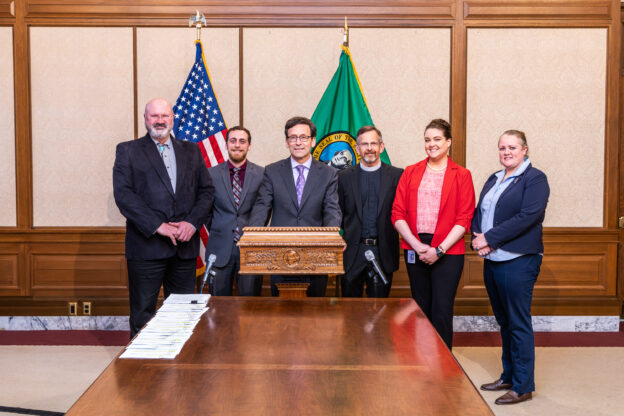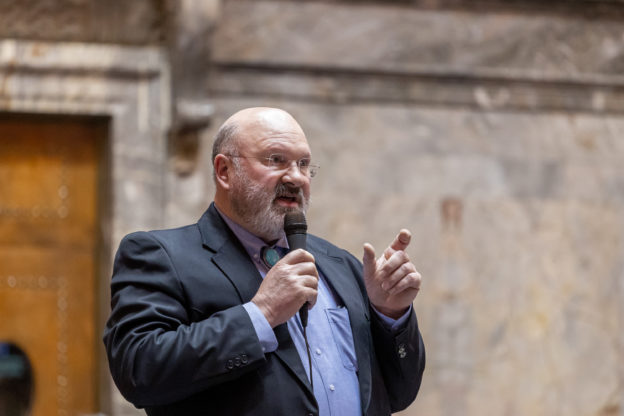Legislation sponsored by Sen. Ron Muzzall to support Washington’s commercial shrimp industry while addressing environmental concerns associated with trawling was signed into law today. Senate Bill 5076 creates a new limited-entry license for the nonspot shrimp pot fishery in Puget Sound, marking a significant shift toward more sustainable fishing practices.
SB 5076 establishes a dedicated license for harvesting nonspot shrimp species such as dock shrimp, coonstripe shrimp, pink shrimp and others, using pot gear instead of trawl nets. The new license is intended to support small-scale fishers, ensure sustainable harvests, and improve coordination with the Washington Department of Fish and Wildlife (WDFW).
“This legislation is about supporting our local fishing communities while also being honest about the impact of our practices on the marine environment,” said Muzzall, R-Oak Harbor. “Trawling can have real, detrimental effects on the seabed and other marine life. By encouraging a transition to pot gear, we’re taking a deliberate step toward more responsible, sustainable fisheries management.”
Under the bill, WDFW may issue up to five total licenses for both shrimp trawl and nonspot shrimp pot fisheries. Importantly, existing trawl license holders will have the opportunity to convert their licenses to pot gear, facilitating a gradual but clear move away from trawling.
“The phaseout of trawling isn’t just about limiting one type of gear, it’s about protecting the long-term health of Puget Sound,” Muzzall said. “This bill encourages innovation and collaboration while preserving access for local fishers who rely on this industry to make a living.”
SB 5076 received strong bipartisan support, passing the Senate 48-0 and the House 97-0.
“This was a sensible bipartisan effort with input from across the fishing industry and both sides of the aisle,” Muzzall added. “It’s a great example of how we can come together to find smart, sustainable solutions for our natural resources.”
The new law will take effect 90 days after the adjournment of the 2025 legislative session.












